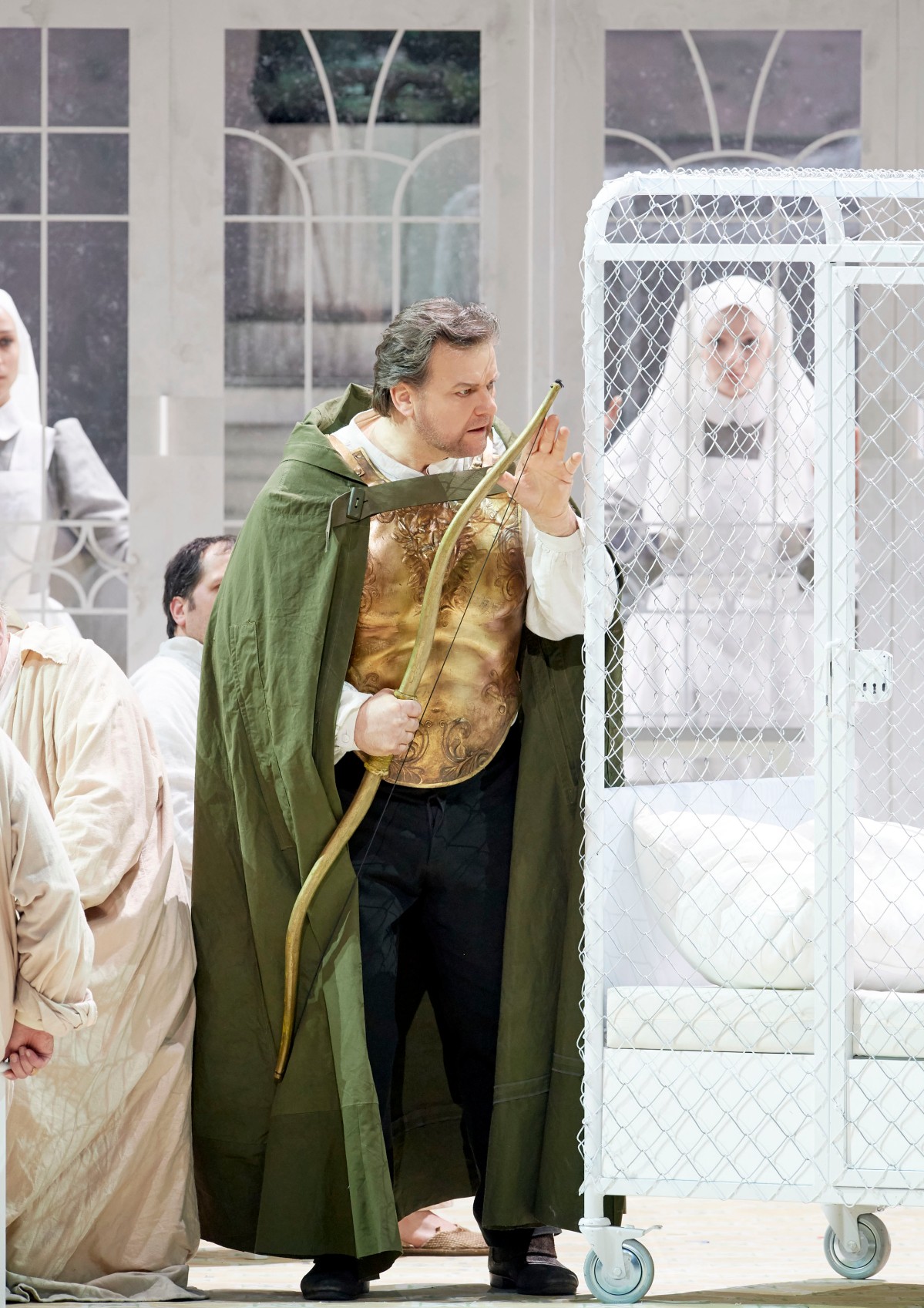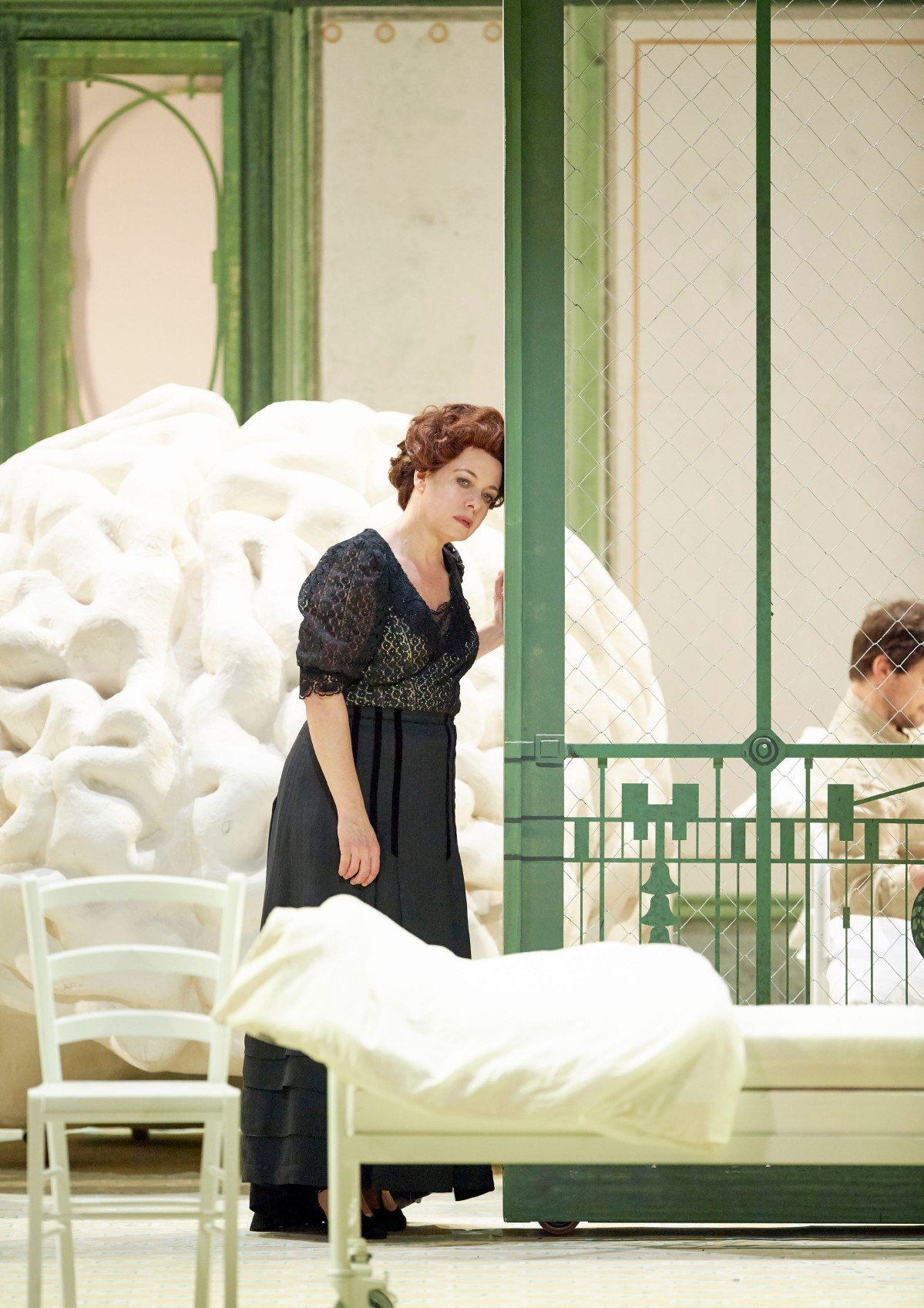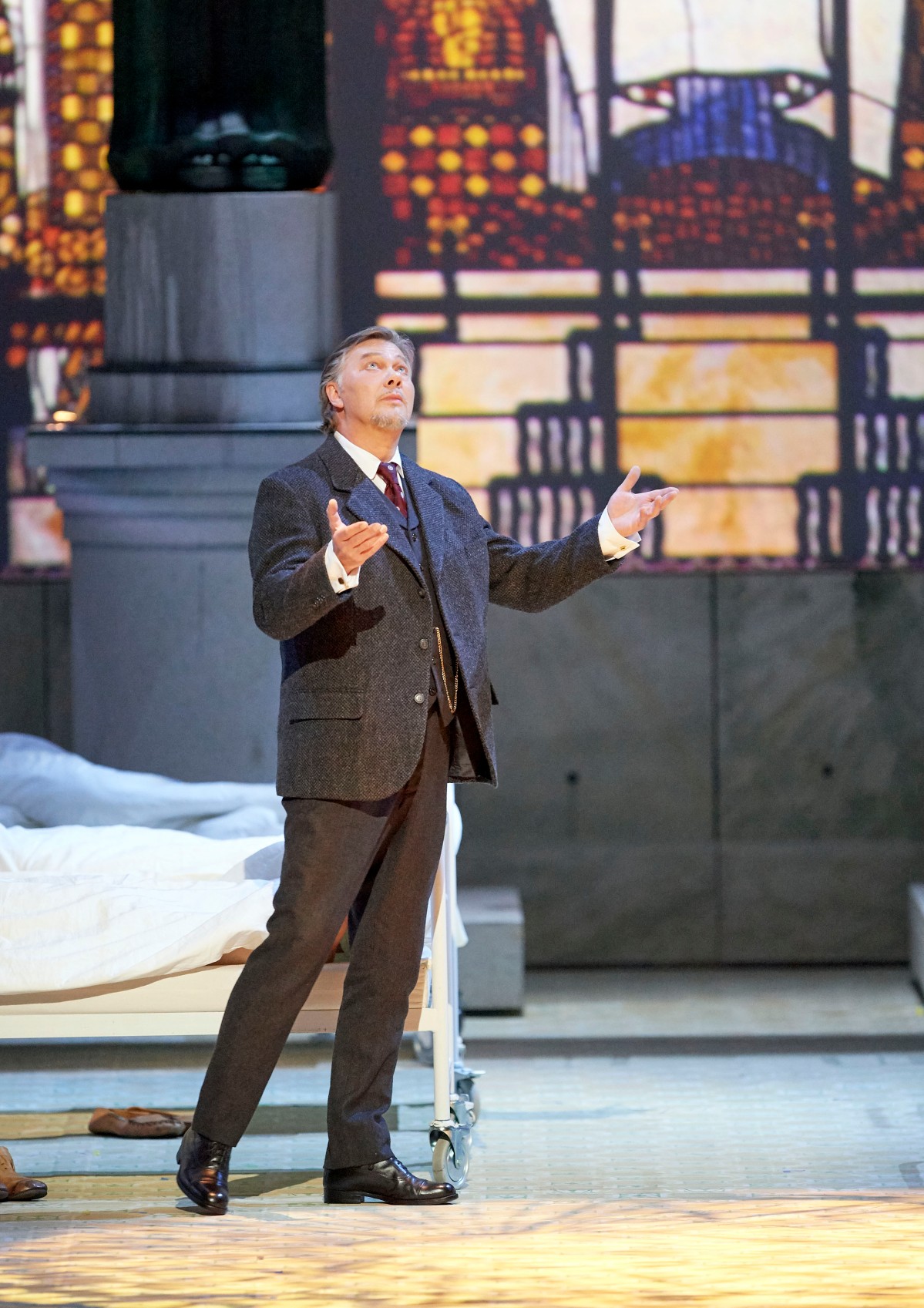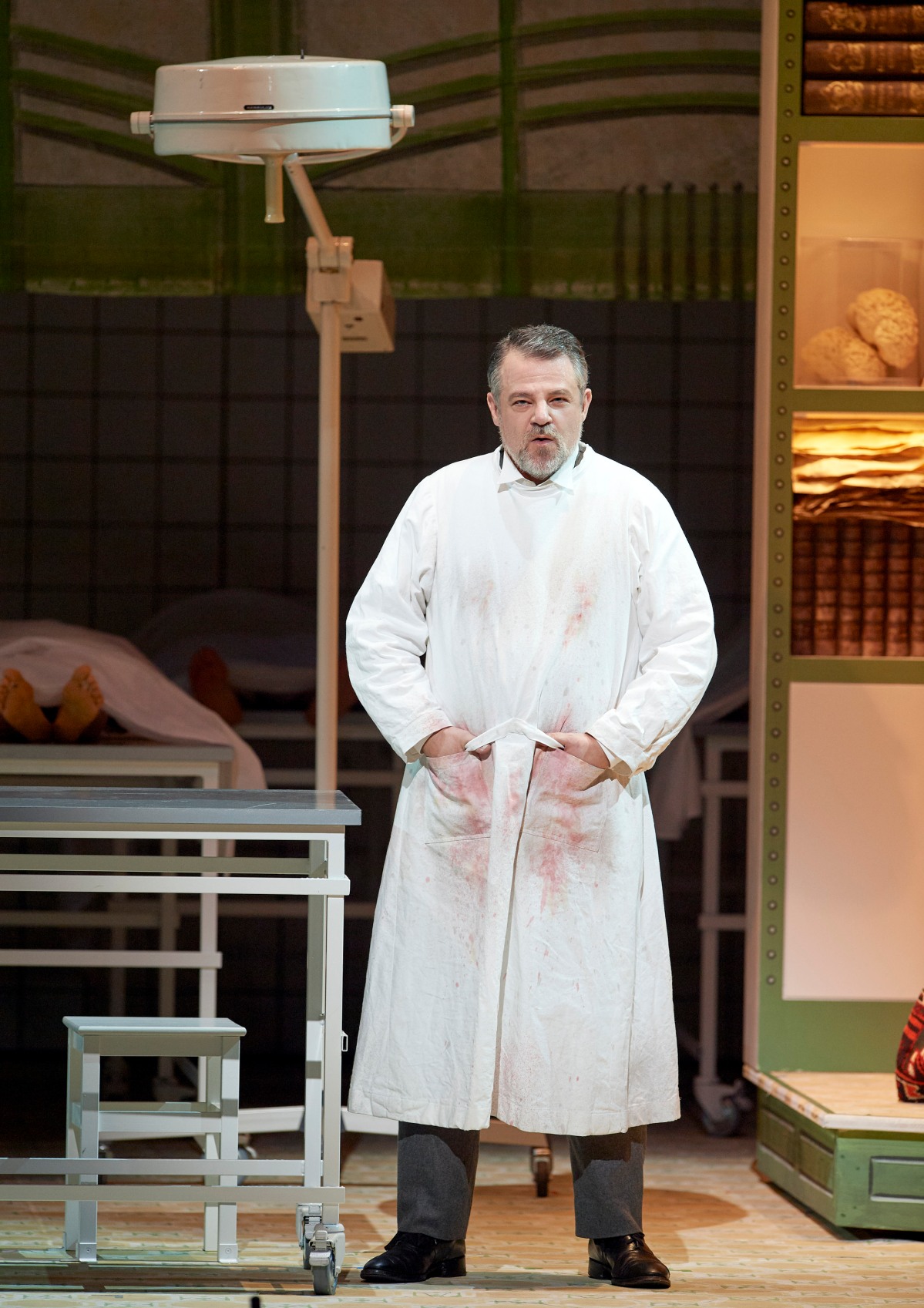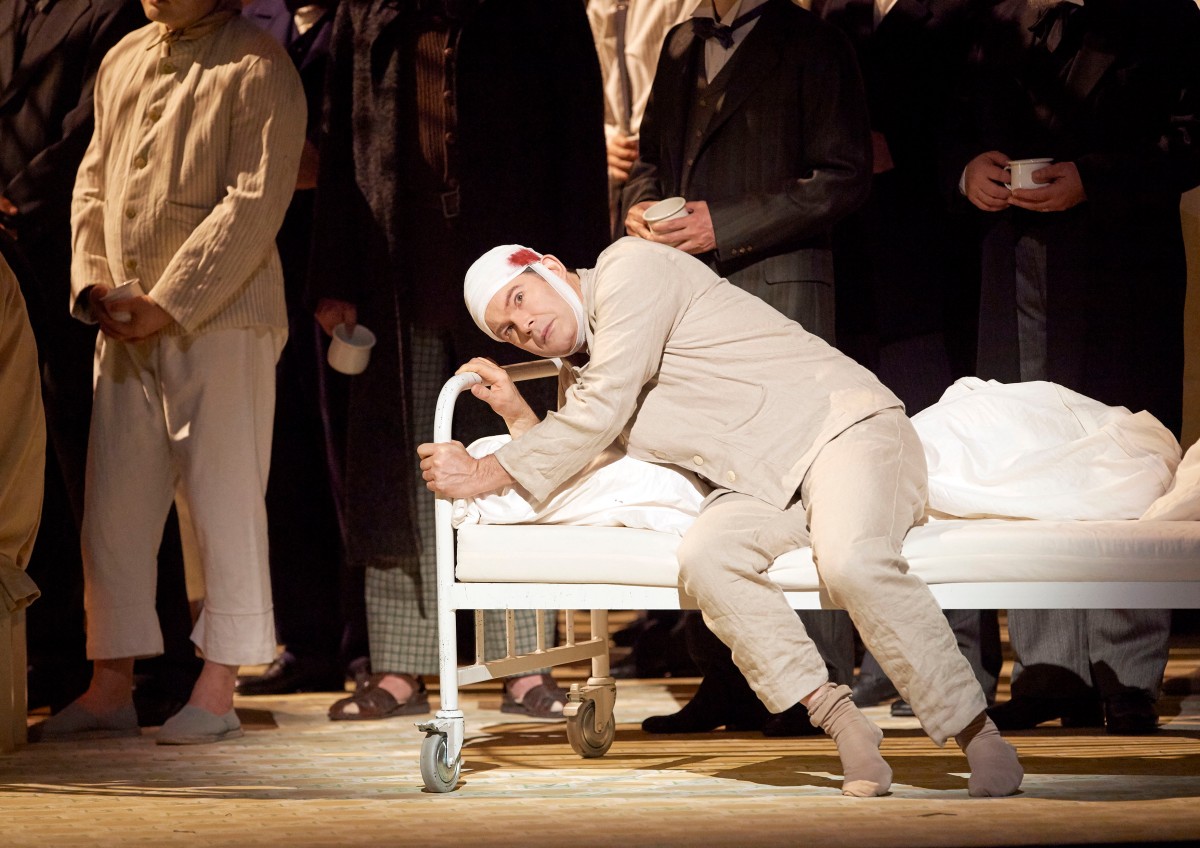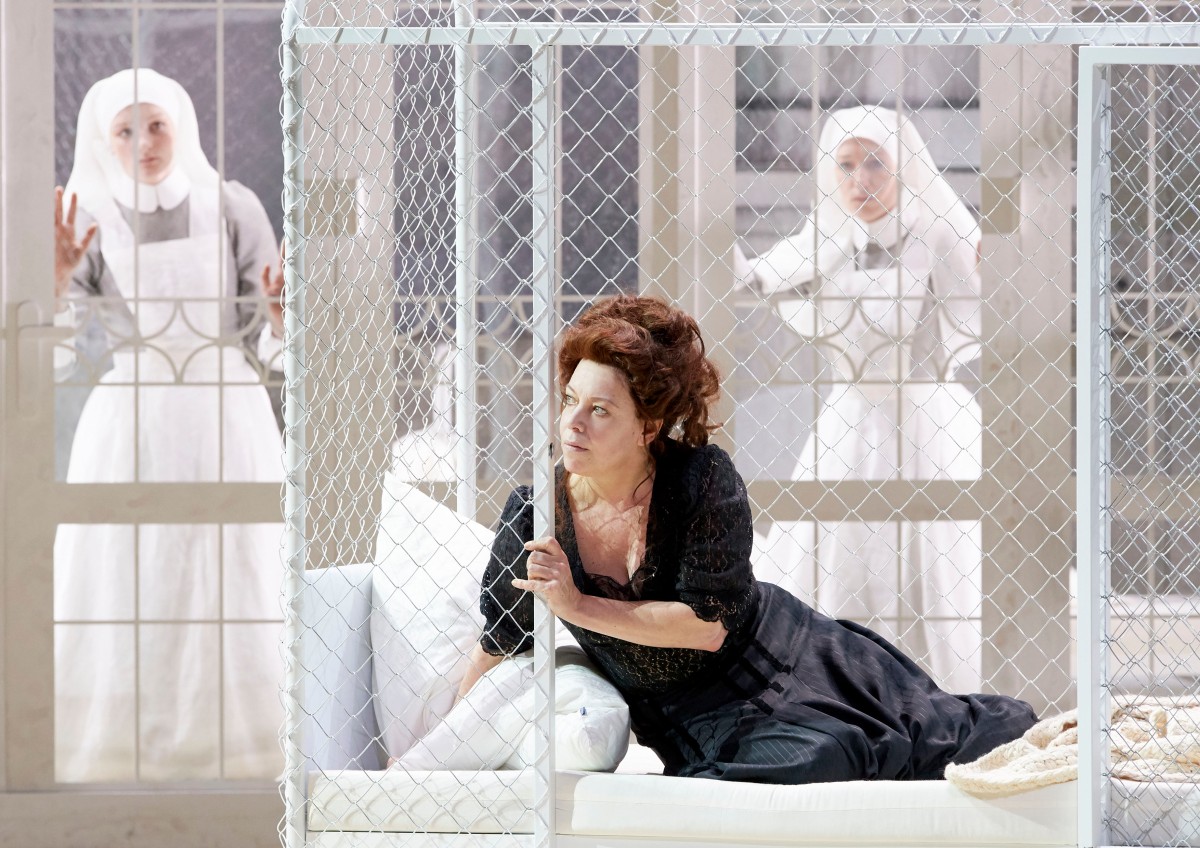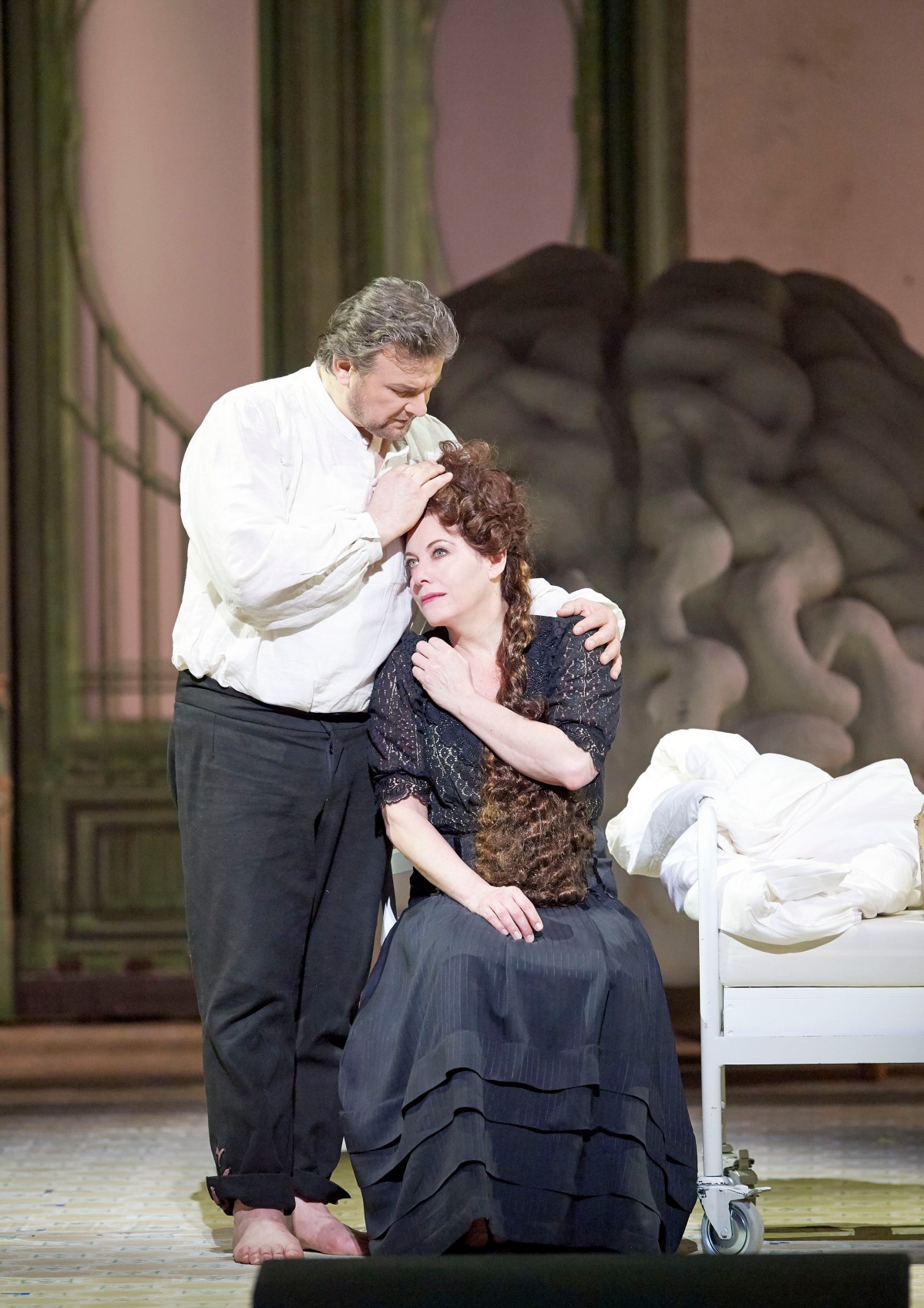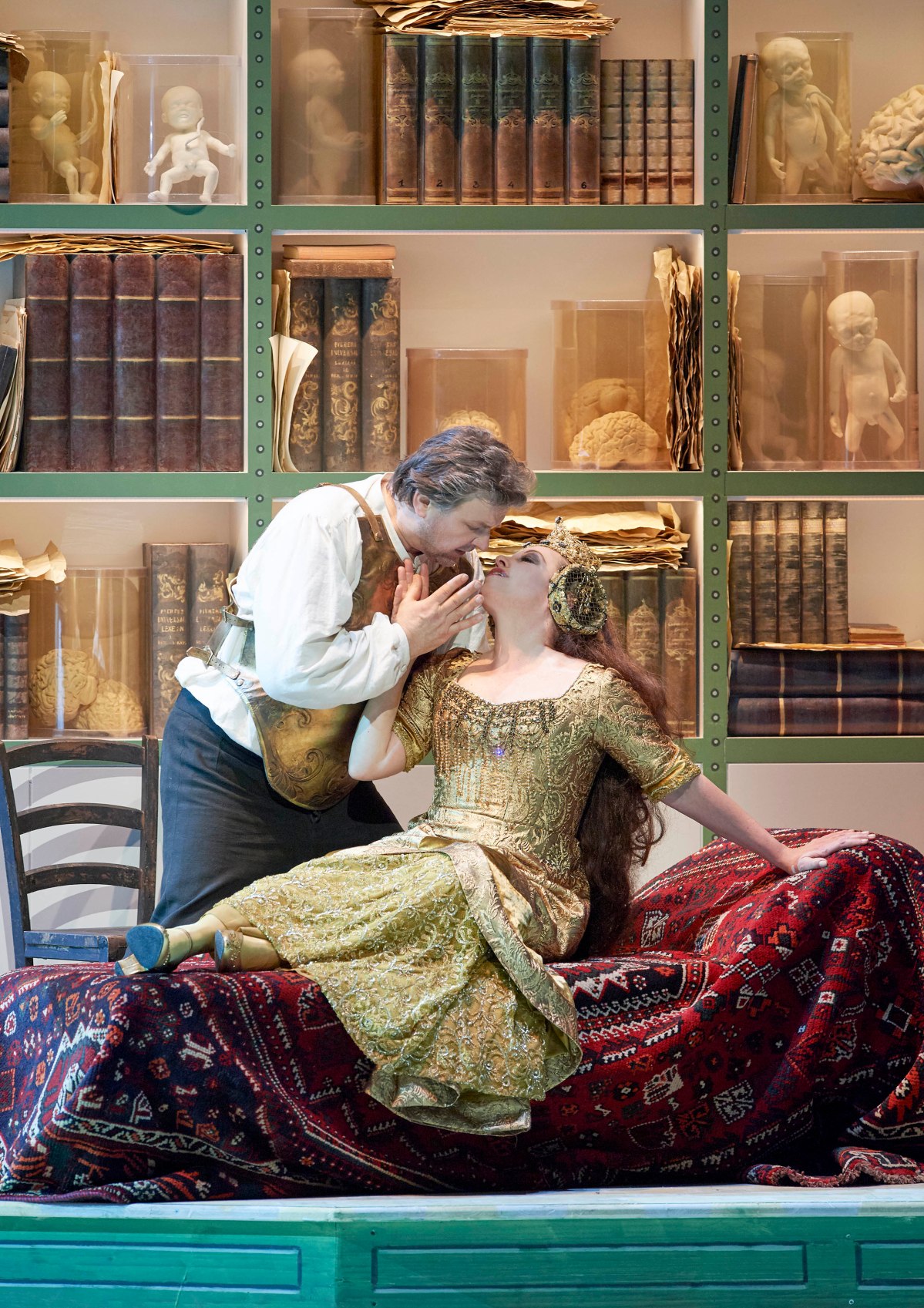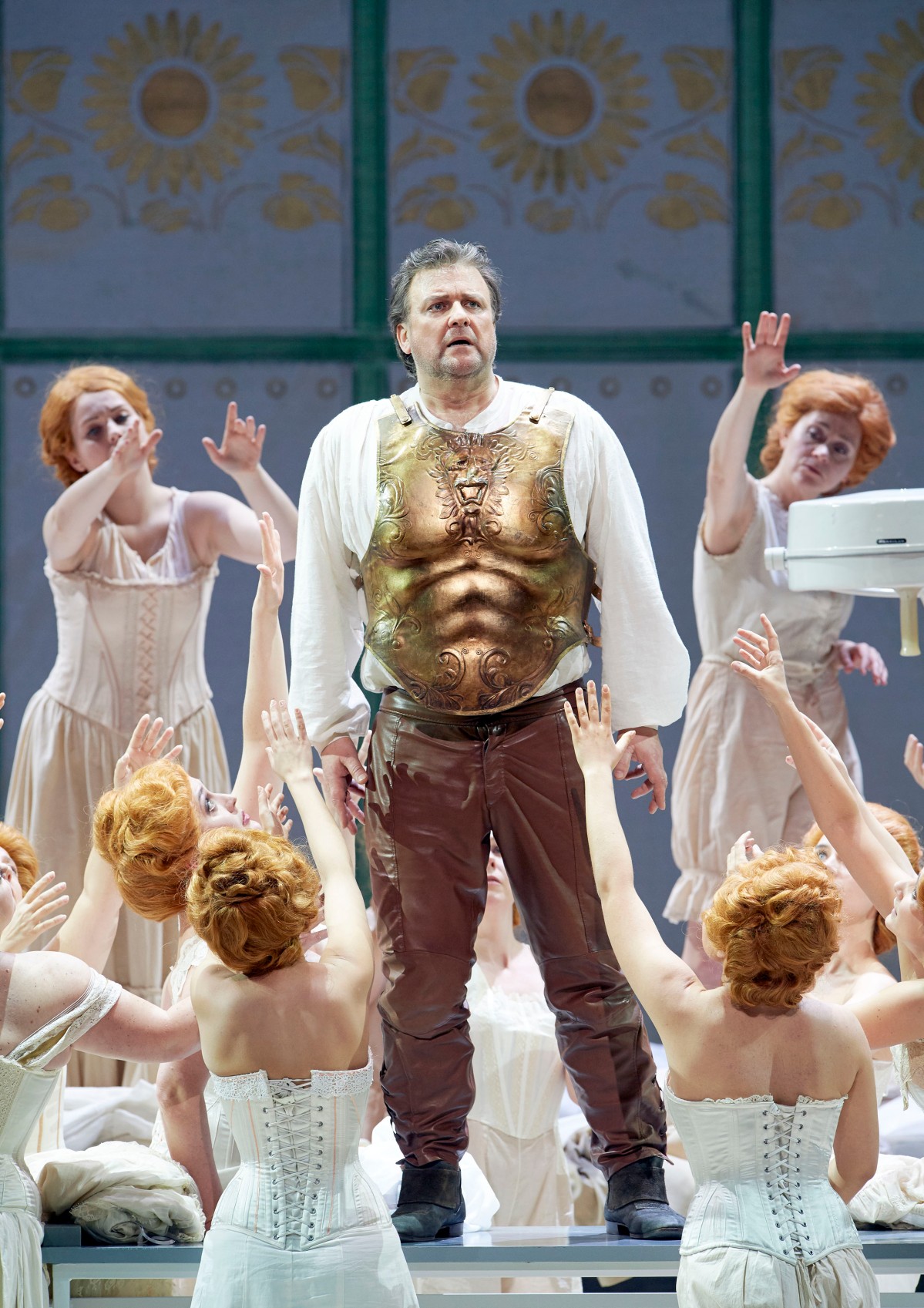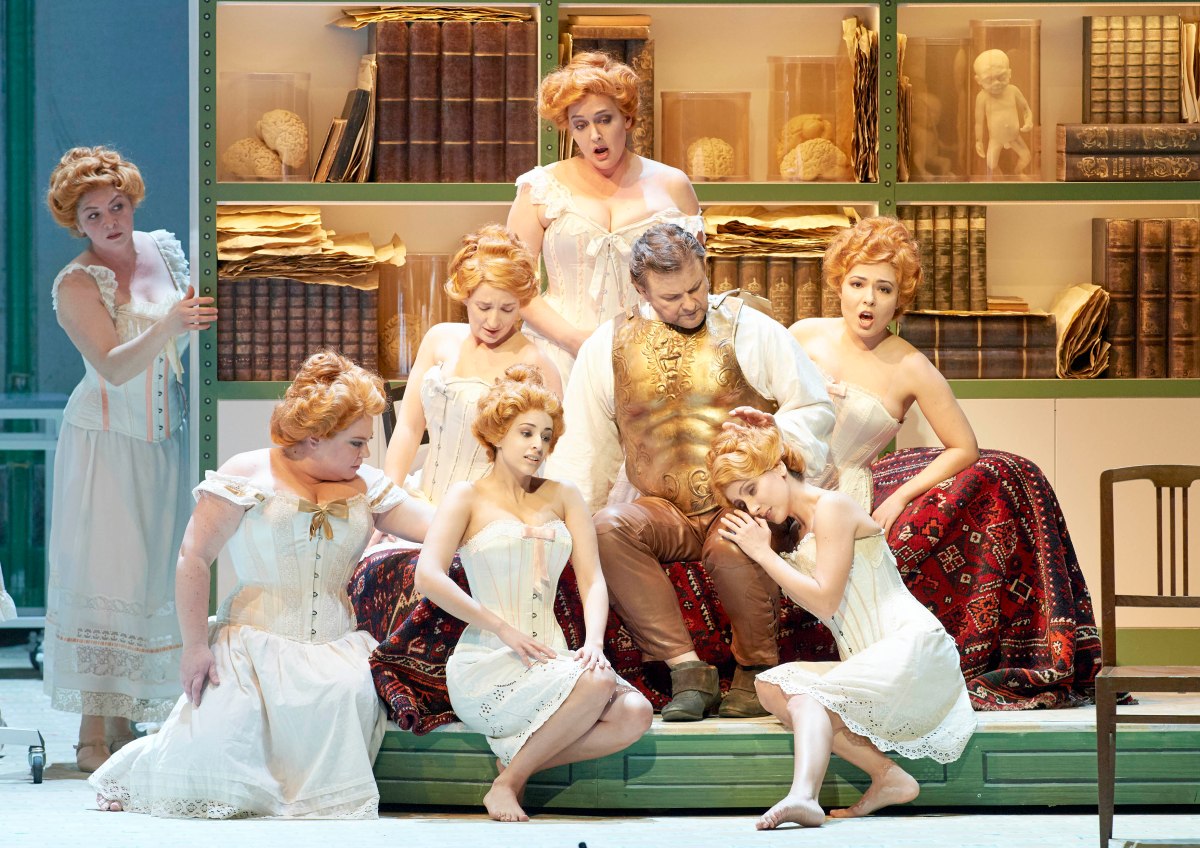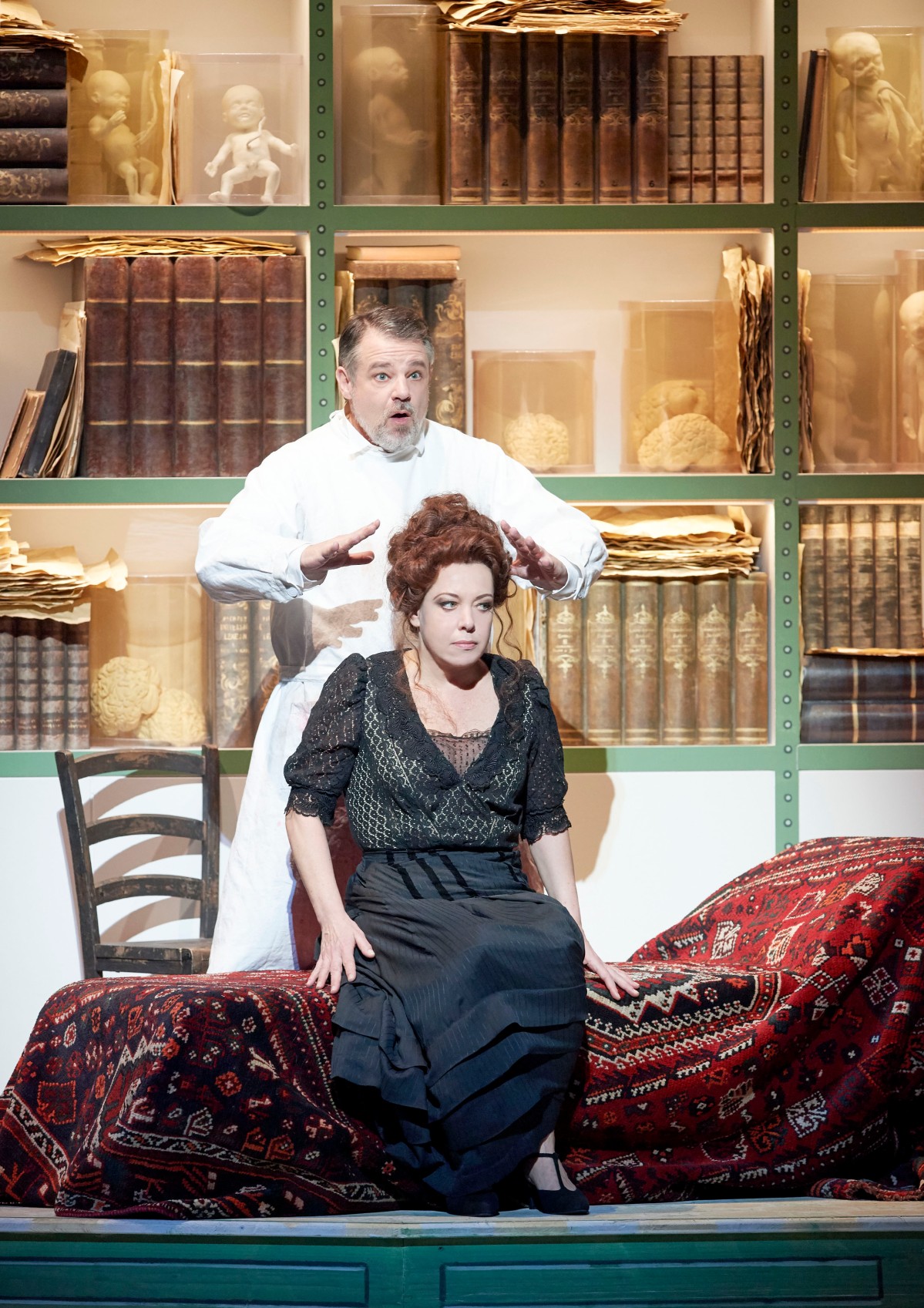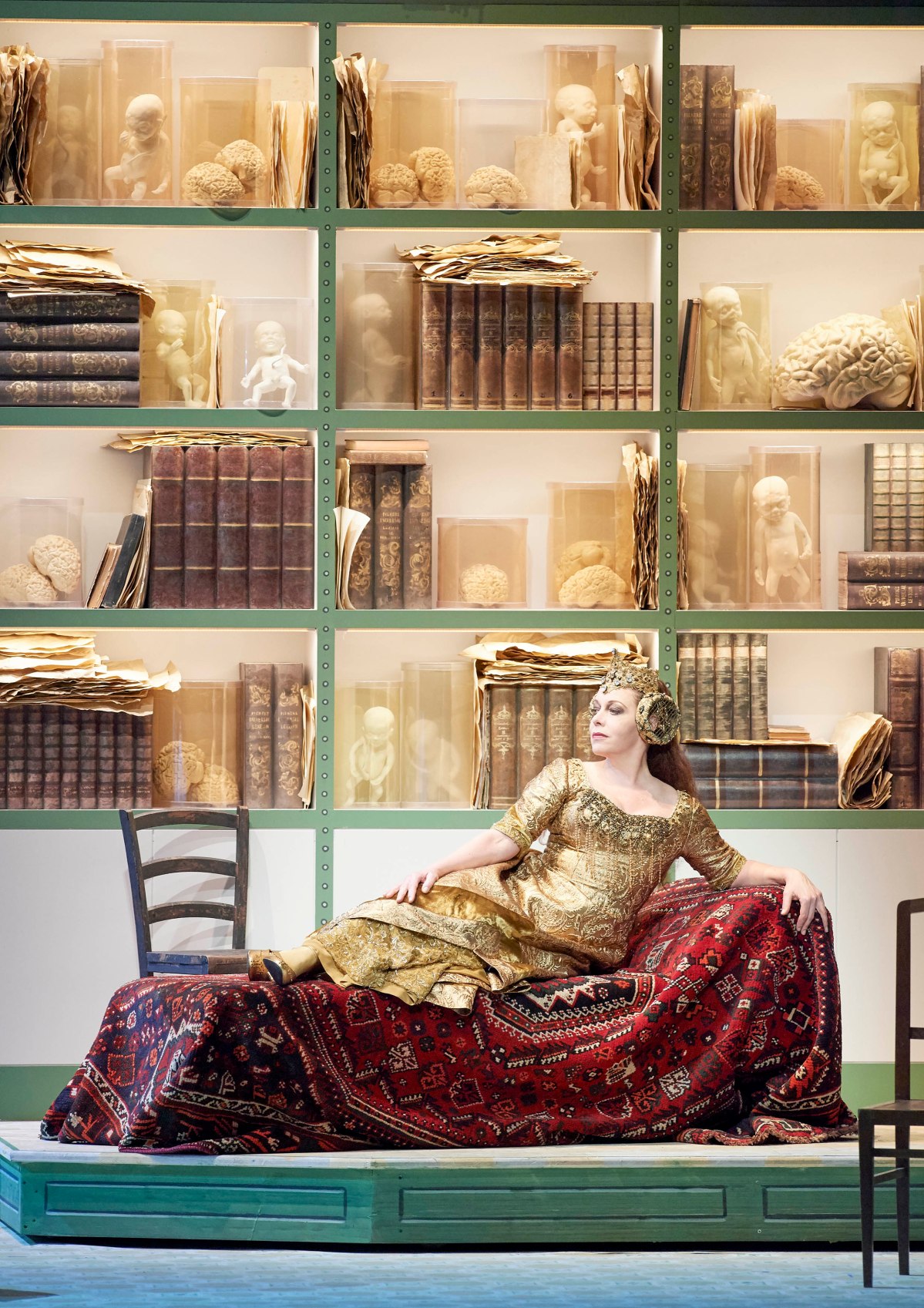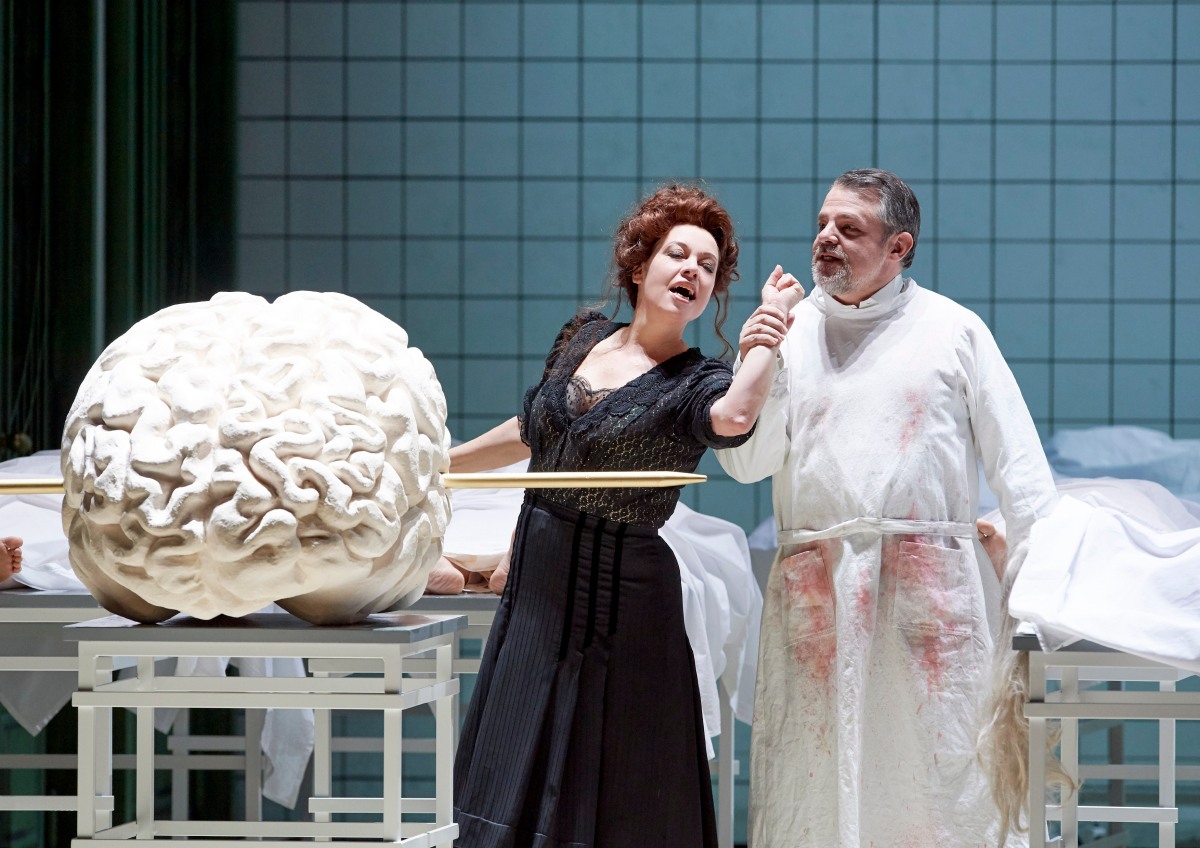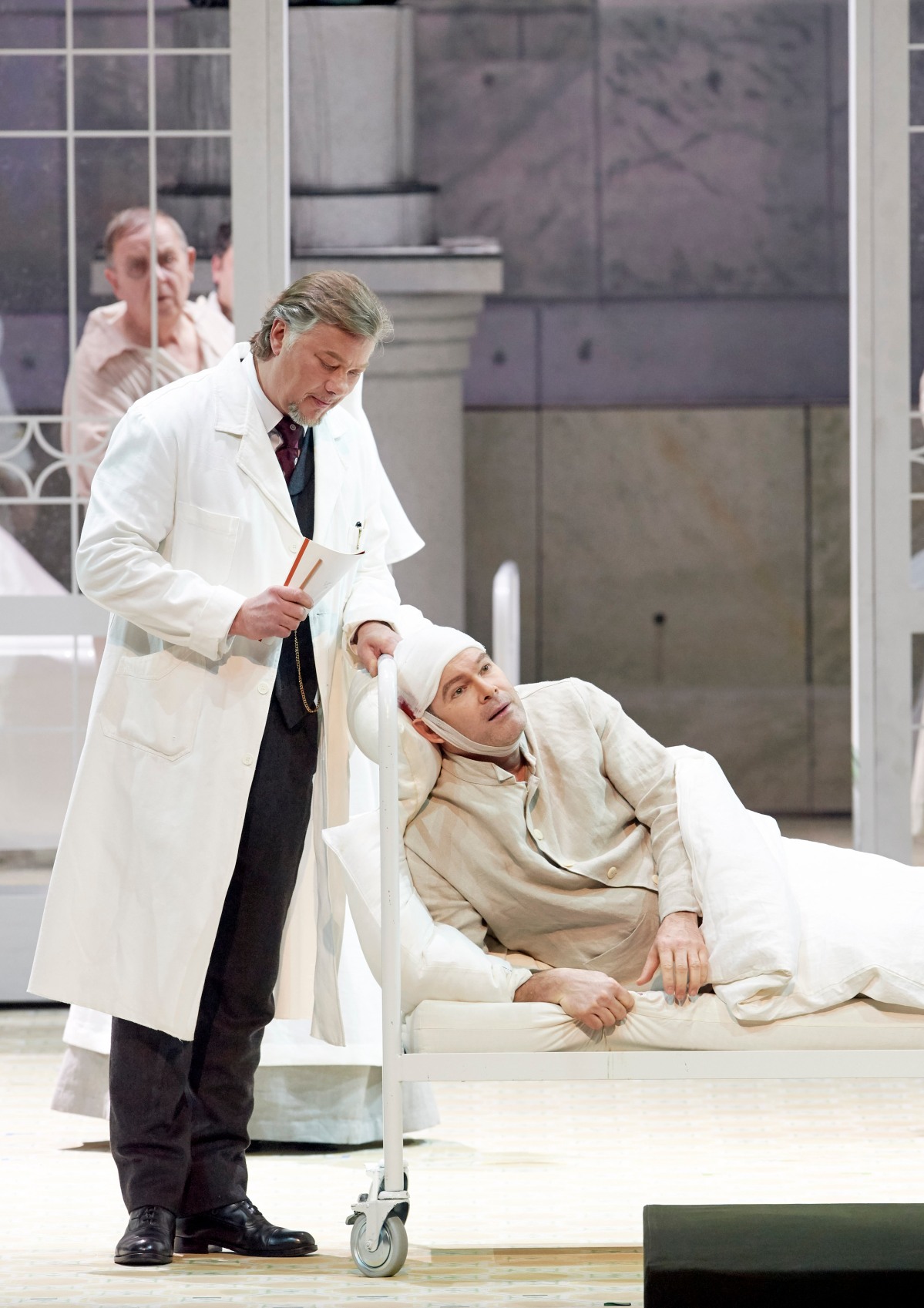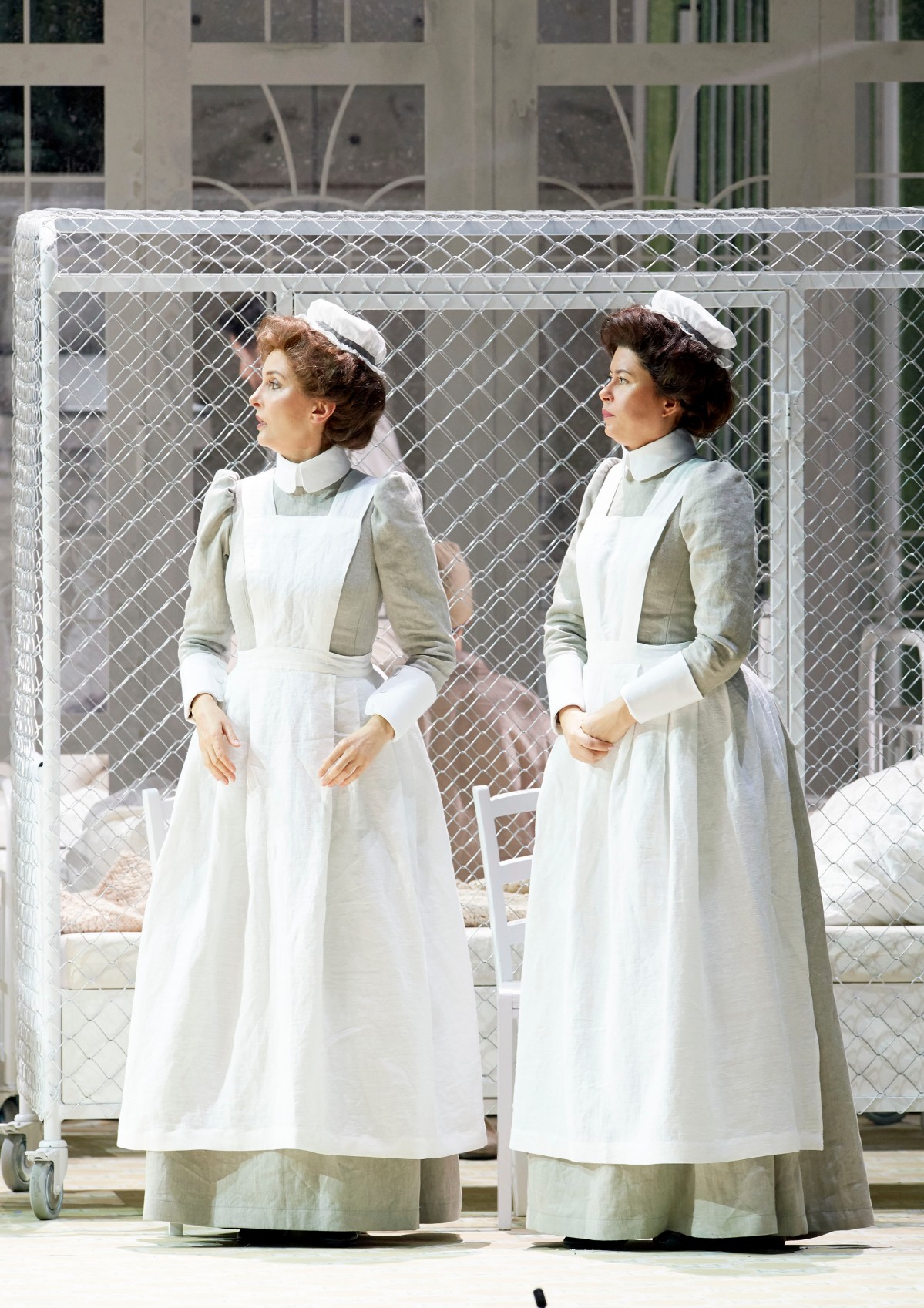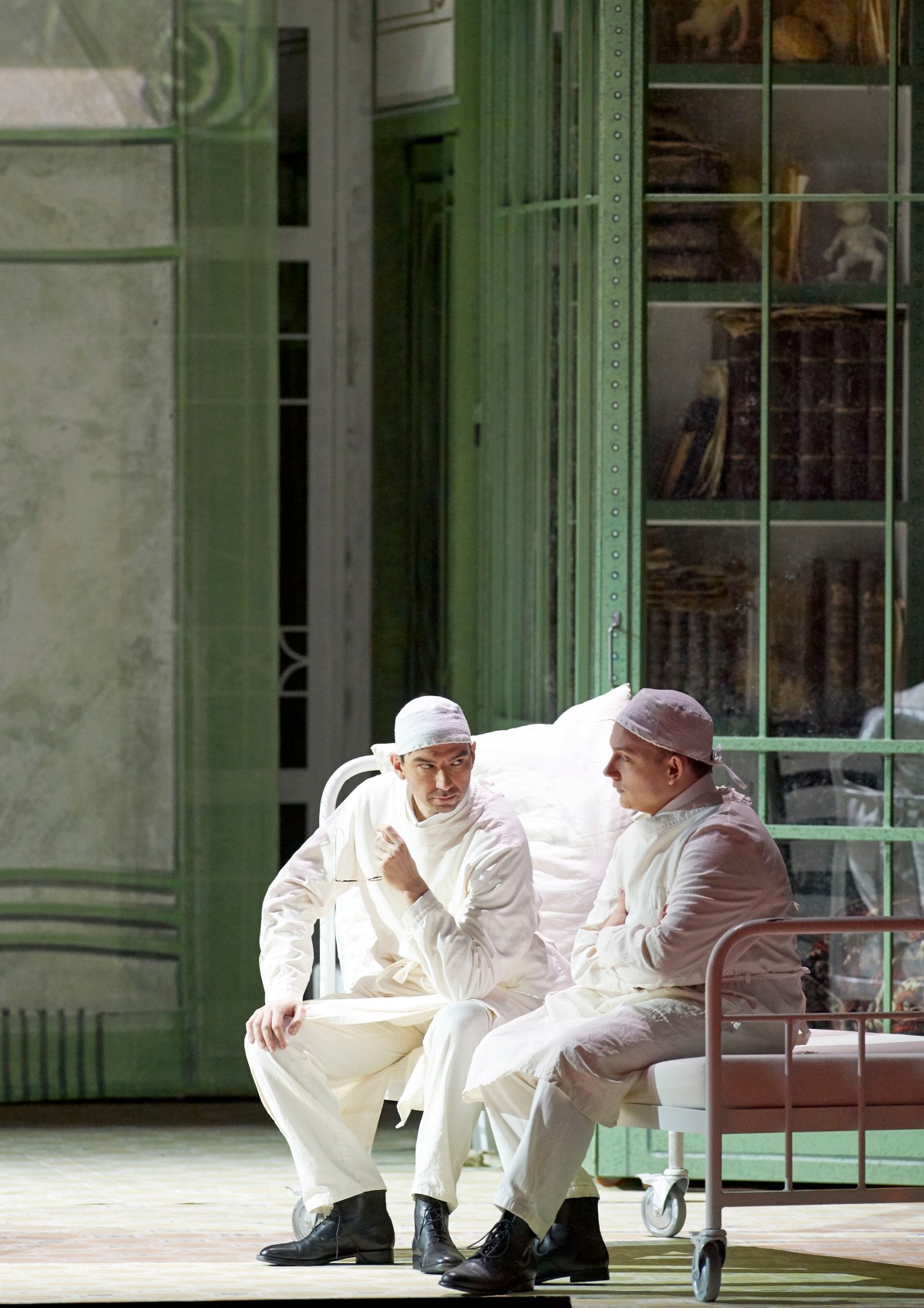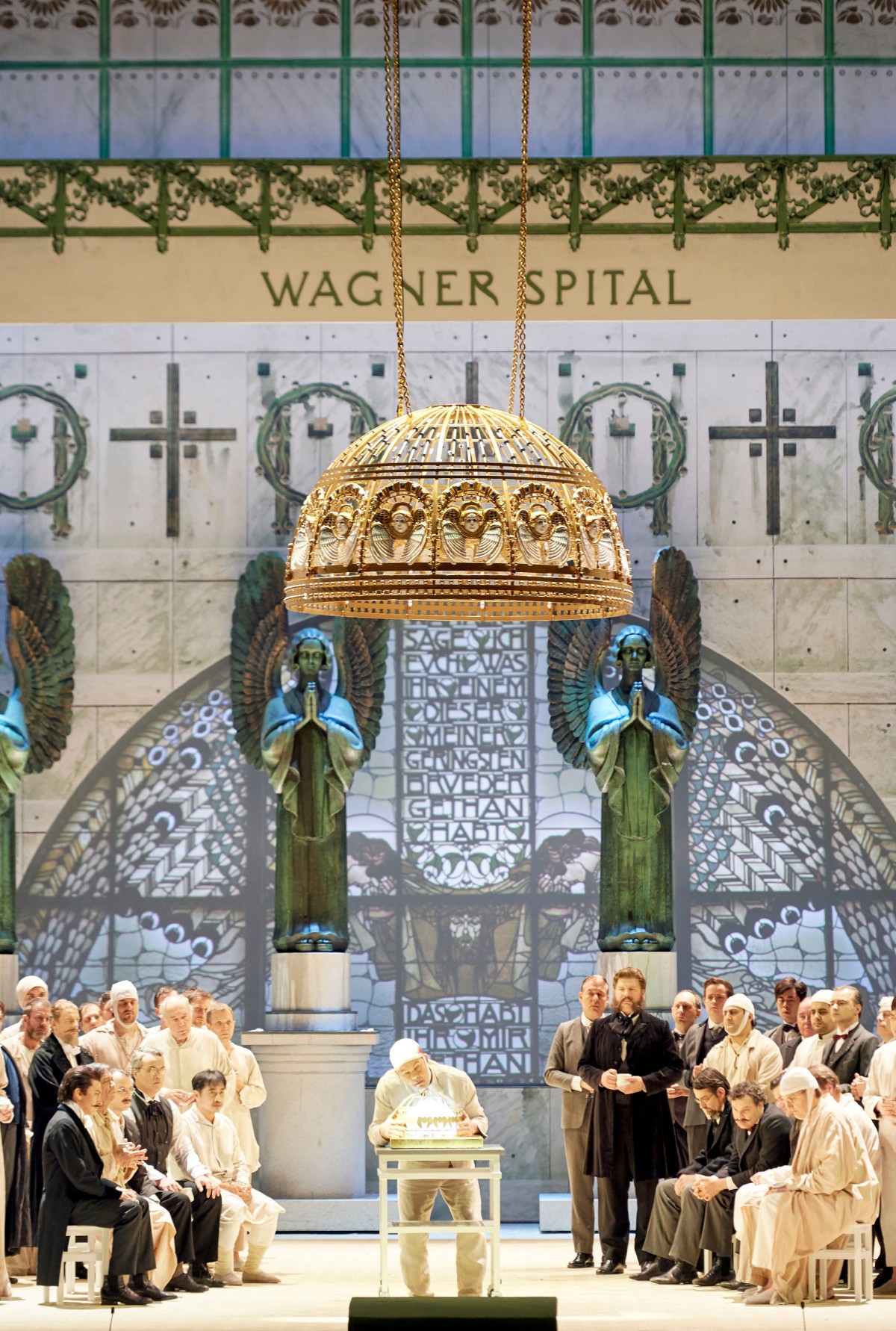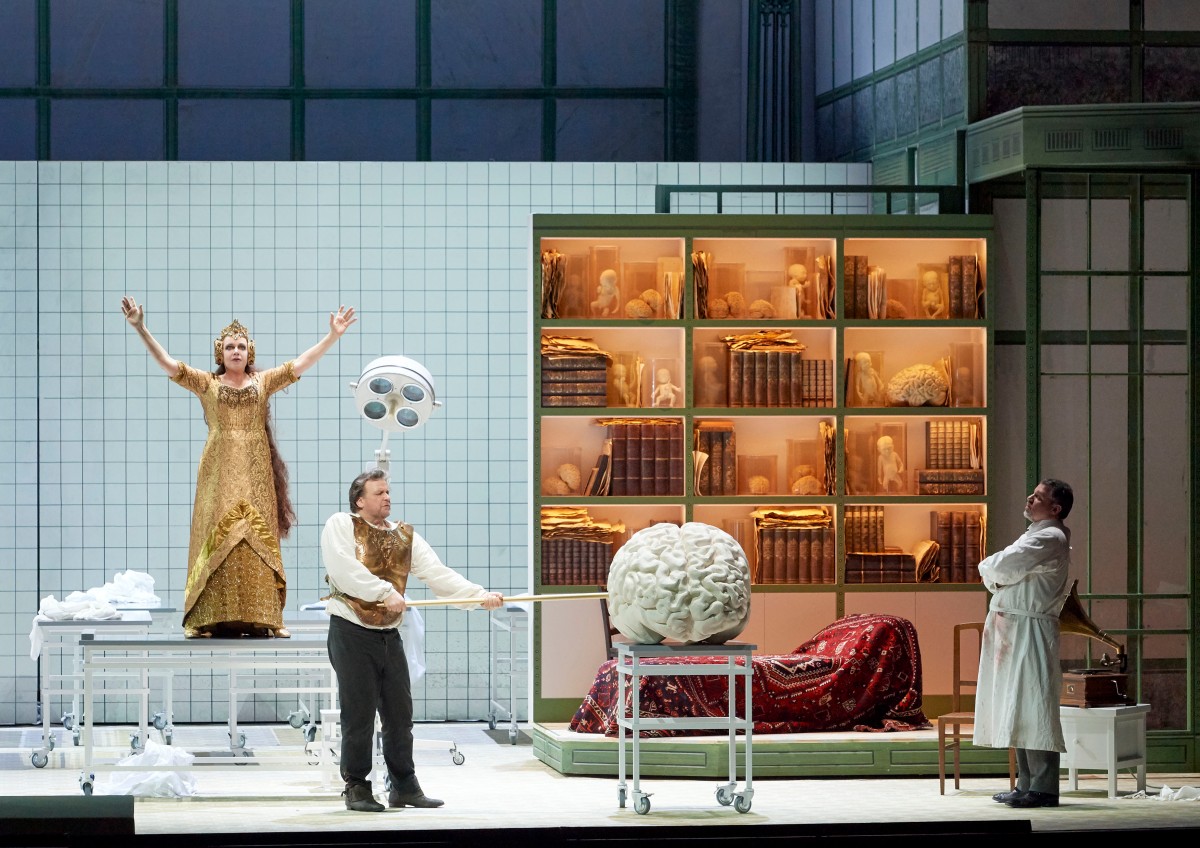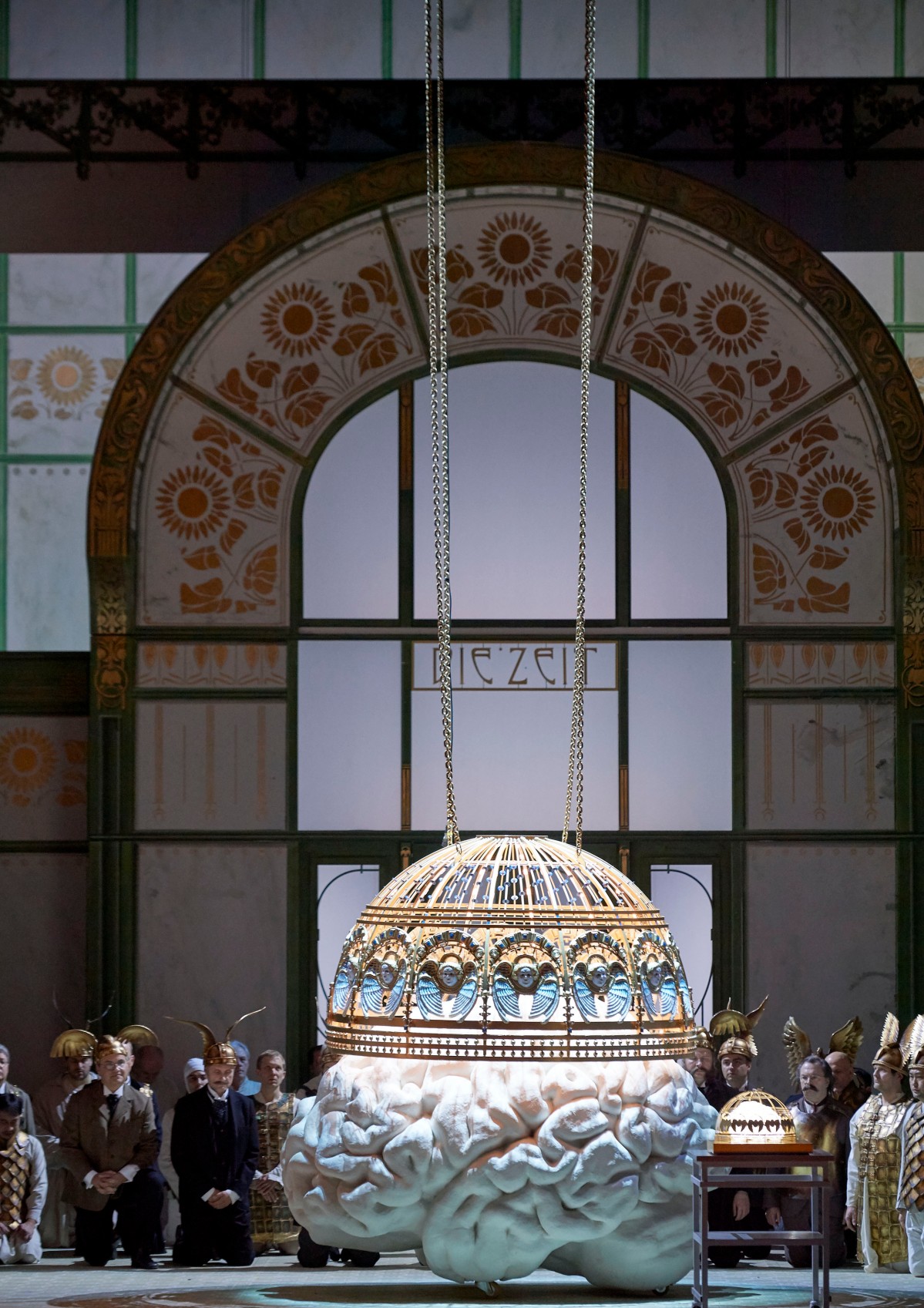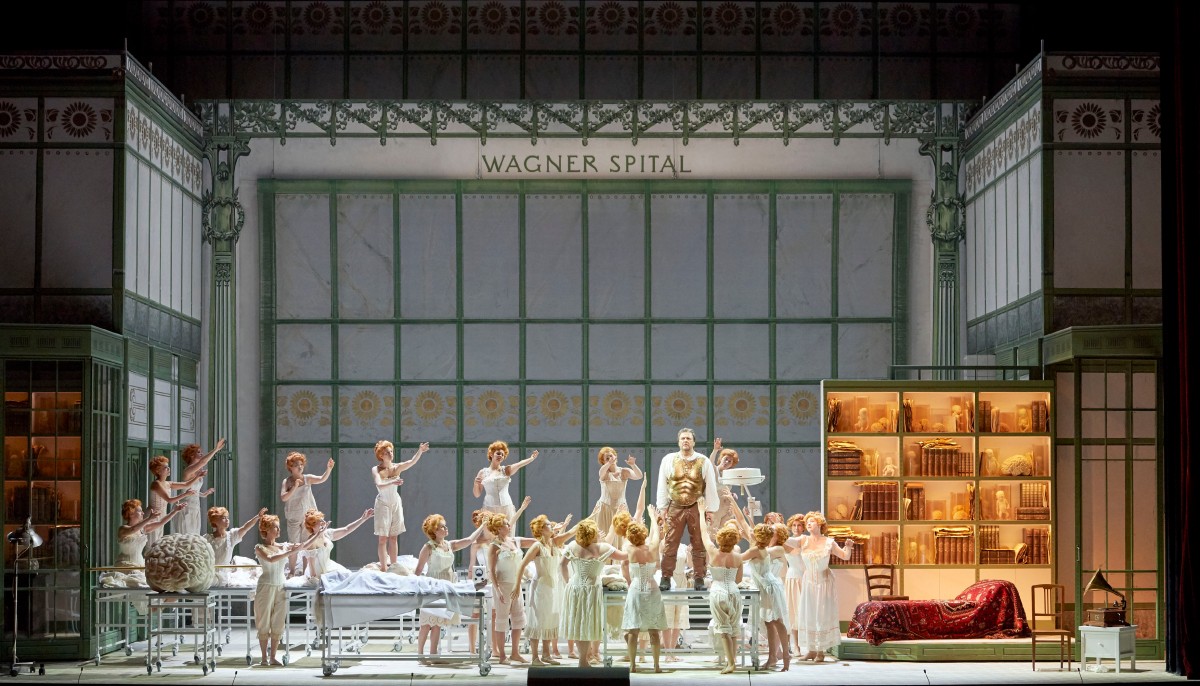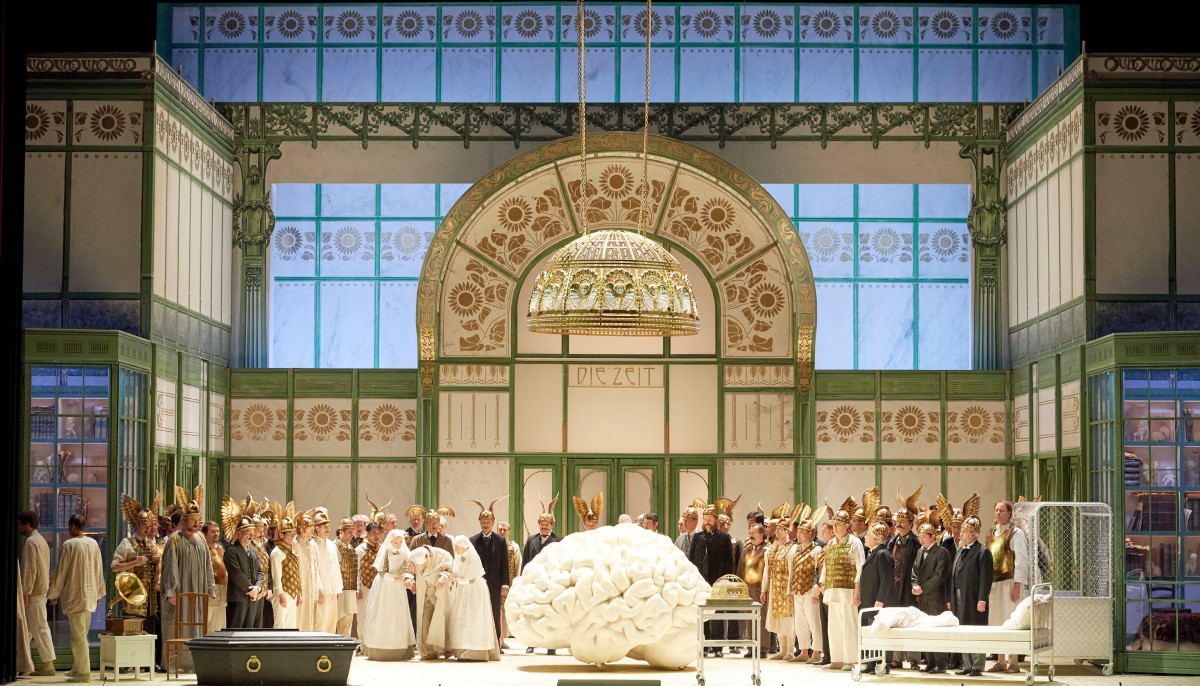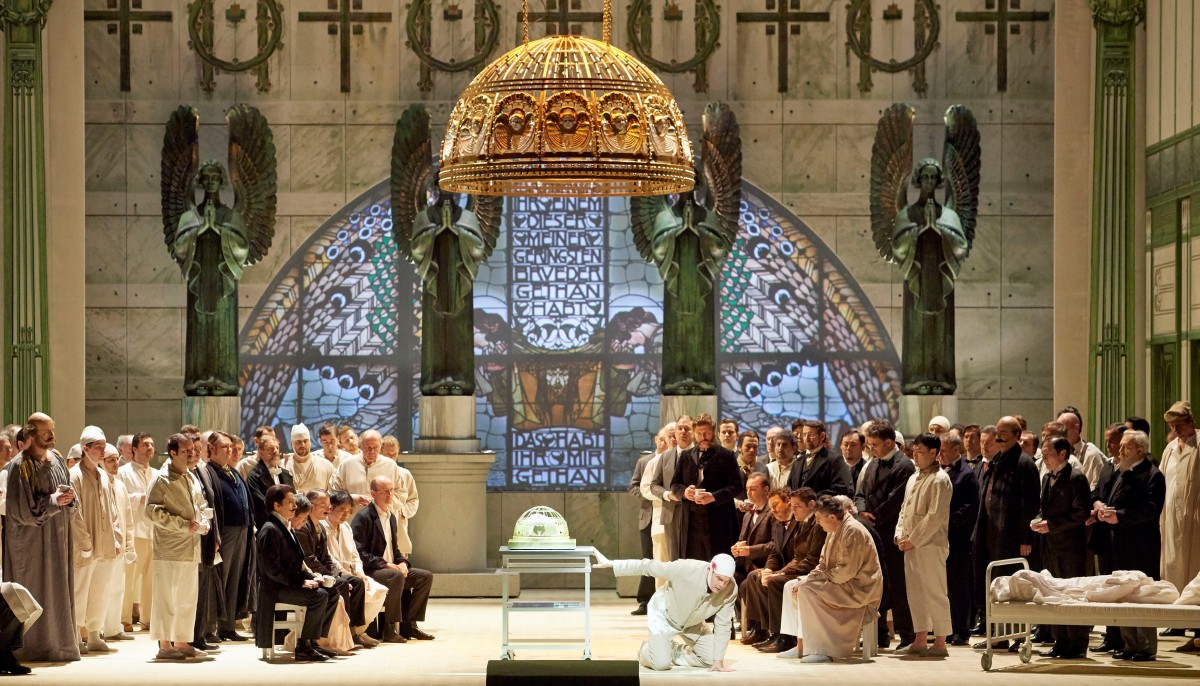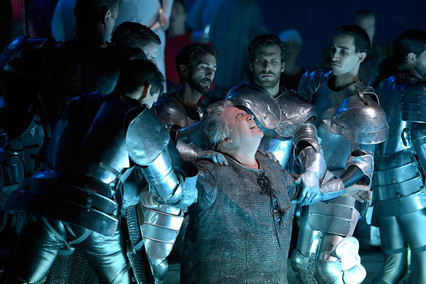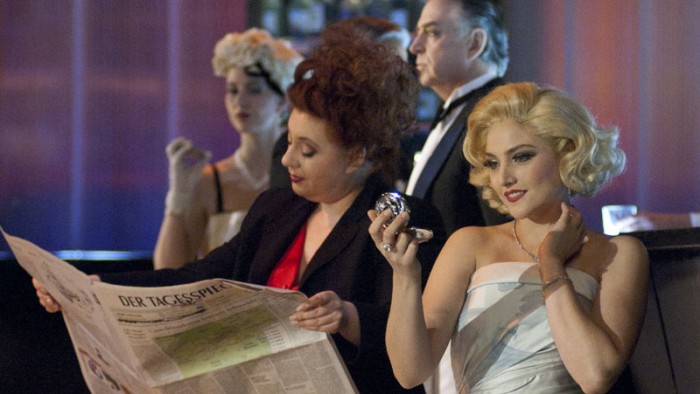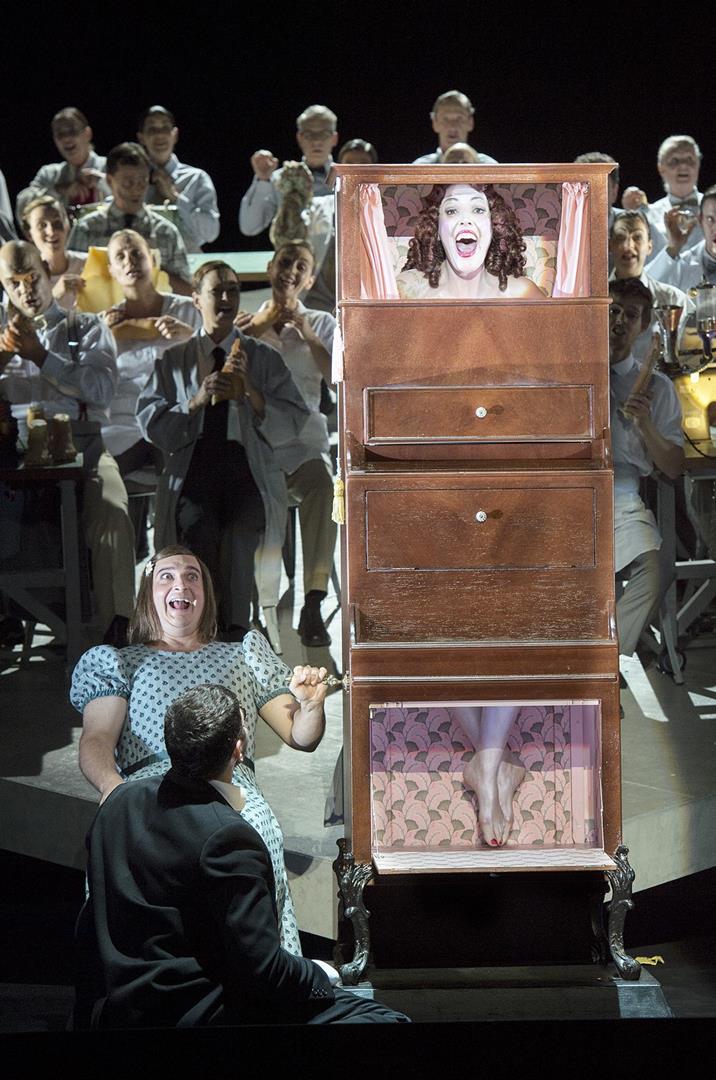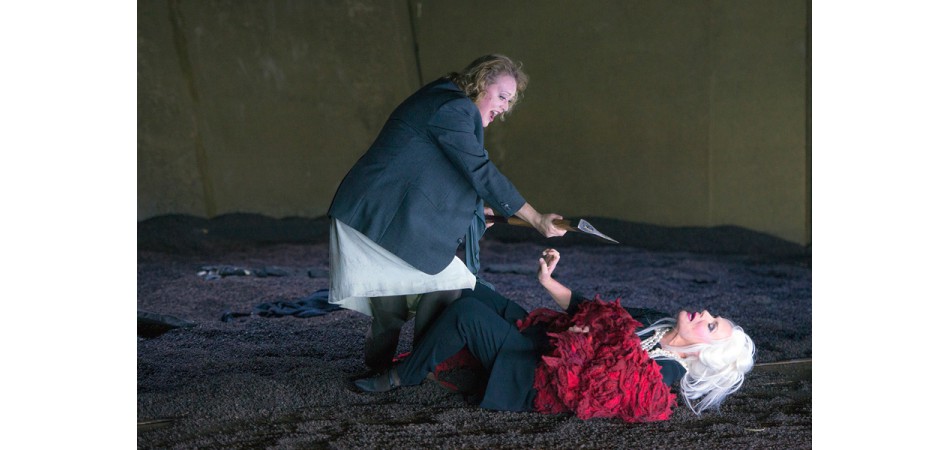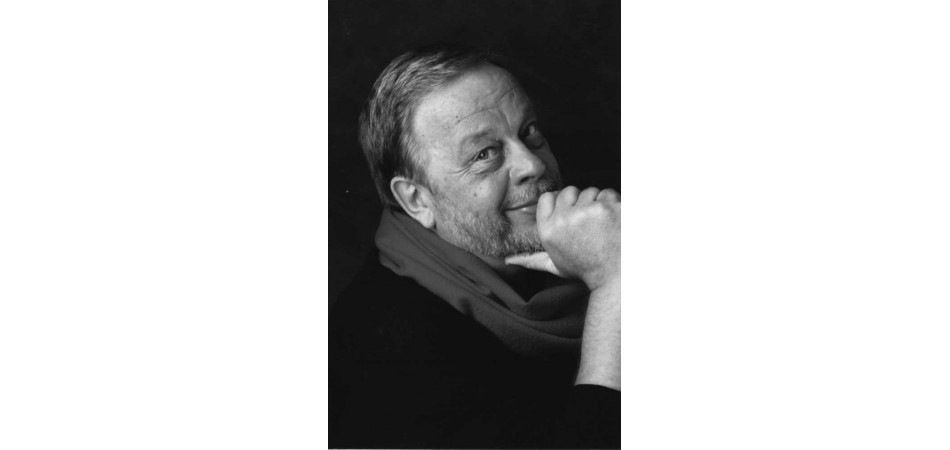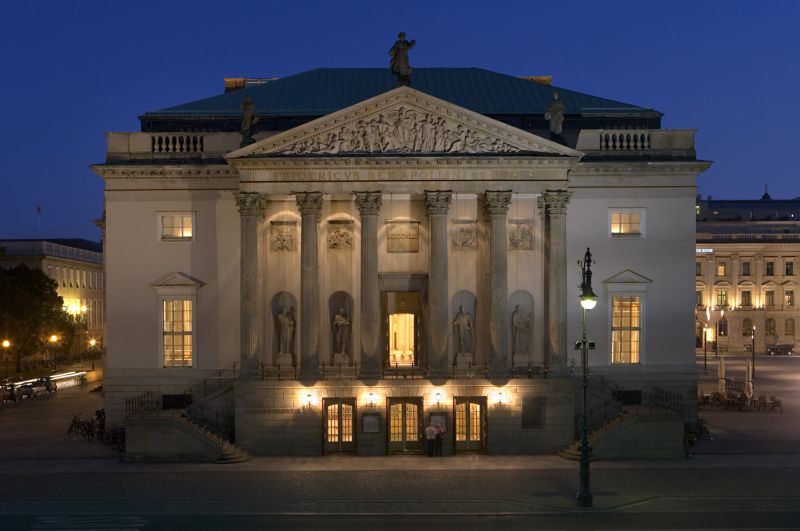Published in conjunction with Arcades Daily
By now Barrie Kosky’s electrifying effect on the Komische Oper is now longer news – or rather, it never ceases to be news. Berlin’s most famous intendant has unveiled his plans for his sixth season at the house on Behrenstrasse, and they are nothing short of mouth-watering. First off, 2017-18 is going to be a very Kosky season, with a third of the NINE new productions overseen by the intendant himself.
To help mark the 70th anniversary of the company’y 1947 founding, a new German-language “Fiddler on the Roof,” known here as “Anatevka” will light up the house for the first time since the Felsenstein era with Yehuda Almagor and Dagmar Manzel headlining. “Pelléas et Mélisande,” the closest thing to a standard rep item among the premieres, will open the season in mid-October. Kosky’s staging, a coproduction with Nationaltheater Mannheim, will star Nadja Mchantaf and Dominik Köninger and as Debussy and Maeterlinck’s doomed lovers. Kosky’s final new outing – he has five other revivals – is Shostakovich’s “The Nose,” fresh from Covent Garden, where Kosky was making his directorial debut.
Another stalwart of the old KOB, Offenbach’s operetta “Barbe-bleue” makes the return of Stefan Herheim, the brilliant Norwegian director whose astounding production of Handel’s “Xerxes” is also on the program. Herheim will direct a bilingual version of this latest installment in the Komische’s new Offenbach cycle, after “La Périchole,” “Les contes d’Hoffmann” and “La belle Hélène.”
At the end of October, the houses’s second premiere of “Satyagraha,” will be, to the best of my knowledge, the first Philip Glass opera staged by one of Berlin’s three main opera companies. Sidi Larbi Cherkaoui, the Flemish-Moroccan dancer and choreographer who founded the Eastman Company (practically the only redeeming thing about Guy Cassiers’ “Ring” cycle at the Staatsoper) will direct the three-act Sanskrit opera.
A leap of several centuries takes to back to Handel’s English-language oratorio “Semele,” next season’s baroque premiere. House darling Nicole Chevalier and Allan Clayton, a young tenor previously seen in Kosky’s “Castor et Pollux,” will star in Laura Scozzi’s dance-filled production.
I can’t recall the last time Franz Schreker’s Wedekind-inspired opera “Die Gezeichneten” made its way back to Berlin, after the Nazis banned the Jewish-Austrian composer’s work in 1933. Several months after Krzysztof Warlikowski’s new staging at the Munich Opera Festival, the KOB will present its own vision, directed by the ageing enfant terrible of Regieshock, Calixto Bieito.
Kosky’s valiant efforts at reviving the works of unjustly-forgotten Jewish composers continues with a concertante version of Paul Abraham’s 1934 Lustspieloperette “Märchen im Grand Hotel,” the latest in a seres that has included the Hungarian-Jewish composer’s “Ball im Savoy” and “Eine Frau, die weiß, was sie will!” Continuing in that vein, Annie Sophie von Otter and Wolfram Koch will star in Kosky’s musical cabaret “Ich wollt, ich wär ein Huhn,” featuring the music of Kurt Weill, Paul Dessau and others.
The KOB’s annual children’s opera will be the world premiere of Turkish composer Attila Kadri Sendil’s Grimm-inspired “Die Bremer Stadtmusikanten,” the company’s latest work for young audiences in both German and Turkish.
All told, it looks like the Komische will once again be the most fabulous place to be in this opera-rich city. It certainly speaks to Kosky’s success that over this weekend, the KOB is the only house in Berlin that is sold out.
